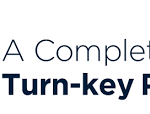New rental laws come into effect on 29 March 2021 impacting every renter and rental provider (landlord) in Victoria.
Replacing the terms ‘landlord’ and ‘tenant’
Tenant and landlord are terms that are no longer used in the new rental laws:
tenants are now renters
landlords are now rental providers
tenancy agreements are now rental agreements
Key rental legislation changes – Before you sign a rental agreement
- Rentals can now only be offered at a fixed price. Rental providers and agents cannot invite rental bids for higher rent.
- Rental providers and agents cannot make false or misleading representations to encourage someone to sign a rental agreement.
- It is unlawful to discriminate against renters based on their personal attributes, such as age, race, religion or disability.
- A rental provider of their agent cannot request inappropriate information in a rental application, for example, the renter’s bond history.
- Rental providers cannot ask for or accept more than one month’s rent as a bond, or require renters to pay more than one month’s rent in advance, for properties with a rent of $900 per week or less.
- Before signing a lease, the rental provider must disclose to a renter if the property is up for sale, this is done both verbally and with Consumer Affairs Victoria.
- Pets cannot be unreasonably refused, although renters must still ask for permission.
Key rental legislation changes – Moving into a rental property
- The rental premises must be handed over to a renter reasonably clean and tidy at the commencement of the rental agreement. If the property is not in a reasonably clean condition the renter can apply to VCAT for compensation and a penalty fine may be issued to the rental provider (landlord).
- There are new standard rental agreements, conditions reports and forms, which rental providers should ensure they are using from 29 March.
- New minimum standards ensure that rental properties meet basic standards of cleanliness, security and privacy. These are the things most people would reasonably expect in a rental property – and most already have them. These apply in all new rental agreements after 29 March 2021. See a summary of conditions below
- If a property does not meet minimum standards a renter can end their tenancy prior to moving in or on the day of lease commencement, they could also give 14 days’ notice to break lease without break lease penalties.
A summary of the new minimum standards
- All external entry doors to the rented premises which are not able to be secured with a functioning deadlock, other than any screen door attached to an external door, must at least be fitted with a locking device that is operated by a key from the outside and may be locked from the inside with or without a key
- Rented premises must meet the ventilation standards in the Building Code of Australia.
- Vermin proof bins must be supplied by local council and compliant with council regulations.
- Rented premises must contain a toilet in working order.
- Bathroom facilities must include a reasonable hot and cold-water supply, a washbasin, shower/bath and a minimum 3 star rated showerhead.
- The kitchen must have a dedicated food preparation area, a sink with hot and cold water, a stovetop in good working order that has two or more burners.
- If a laundry is provided it must be connected to a reasonable amount of hot and cold water.
- Rented premises must be structurally sound and weatherproof.
- Each room must be free from mould and damp caused by the building structure.
- The rental property must have electrical safety switches installed from 29 March 2023.
- All windows in bedrooms and the living area must have coverings that can block light and provide privacy.
- External windows that can be opened must be able to be set in open/closed position.
- If there are no locks, there must be latches to secure against external entry.
- Interior rooms and corridors must have appropriate access to light. It can be natural or artificial
- Any habitable rooms (such as a bedroom, living room or study) must have access to natural light and artificial light.
Heating
Phased approach to these reforms, being introduced over a 3-year period
- From 29 March 2021, a fixed heater in the main living area will be required for all rented premises including Class 1 properties (attached and detached houses) and Class 2 properties (multi-unit residential buildings)
- If a fixed heater in the main living area has not been installed, an energy-efficient heater (2 star minimum) must be installed
- From 29 March 2023, an energy-efficient fixed heater (minimum 2 star rated) in the main living area will be required for all rented premises
- If the rental property is in a class 2 building (apartment block) and it is not feasible to install an energy-efficient heater, (e.g. due to Owner’s Corporation rules or excessive costs), then the energy efficiency requirement does not apply, but a fixed heater is still required.
Smoke Alarms and fire safety
- Smoke alarms must be installed in all Victorian houses, units, flats and townhouses.
- All buildings built after 1 August 1997 must have hard-wired smoke alarms with a battery back-up. Buildings built before that date can have a battery-powered smoke alarm.
- Rooming houses must have hard-wired smoke alarms. Read more about how rooming house operators must meet their gas and electrical safety obligations. https://www.consumer.vic.gov.au/housing/renting/repairs-alterations-safety-and-pets/gas-electrical-and-water-safety-standards/rooming-house-operators-gas-and-electrical-obligations
- The rental provider must ensure smoke alarms are correctly installed and in working order, are tested according to the manufacturer’s instructions at least once every 12 months, have their batteries replaced as required and are repaired or replaced as an urgent repair.
- Renters must notify the rental provider in writing as soon as possible after becoming aware that a smoke alarm is not in working order.
- Broken smoke alarms are urgent repairs, and the rental provider must immediately arrange for a smoke alarm to be repaired or replaced if they are notified that it is not in working order. This should be done by a suitably qualified person. This doesn’t always mean someone with qualifications.
- On or before the start of a rental agreement, a rental provider must give a renter written information on how each smoke alarm works and how to test them
- The renter must not deactivate or remove a smoke alarm or interfere with its operation in any way. If a renter, resident or their visitor does this, it is a breach of duty and a rental provider or rooming house operator may give the renter or resident a notice to vacate
- The renter should leave batteries in the smoke alarm when moving out.
Key rental legislation changes – During the rental agreement
- Definition of urgent repairs has been expanded, which includes serious faults that impact on safety and use of the property.
- Rent can only be increased once a year.
- Renters can make simple modifications without seeking permission, such as attaching child safety devices or replacing curtains.
- Allowing other modifications that a rental provider cannot unreasonably refuse, including allowing the planting of a vegetable or herb garden, painting, securing gates and installing security systems and flyscreens at the renter’s own cost.
- Rental providers are responsible for conducting gas and electricity checks every two years.
- A staged requirement for rented properties to have energy efficient heater so renters can stay warm without worrying about their electricity bills.
Key rental legislation changes – Ending a rental agreement
- Renters can no longer be evicted for no reason – a valid reason is required, including: a sale, change of use, or if the owner is moving back in.
- A renter can be evicted if they are violent or threatening towards a rental provider, agent or neighbour.
- Renters experiencing family violence will be able to change or terminate their rental agreement and not be held liable for damages in some circumstances.
- Renters can apply to the Residential Tenancies Bond Authority (RTBA) to get their bond back, if they cannot get their rental provider’s agreement, to have all or part of their bond released
- VCAT must not issue an eviction possession order without first considering whether it is reasonable and proportionate in the circumstances of the application to do so.
For more information, please visit CAV and Victorian legislation:
- All changes to VIC residential tenancy laws
- Changes already in place
- Resources for practitioners
- Victorian legislation
- Temporary COVID-19 renting laws and support
Feel free to get in touch with our friendly property management team on 1300 332 625



